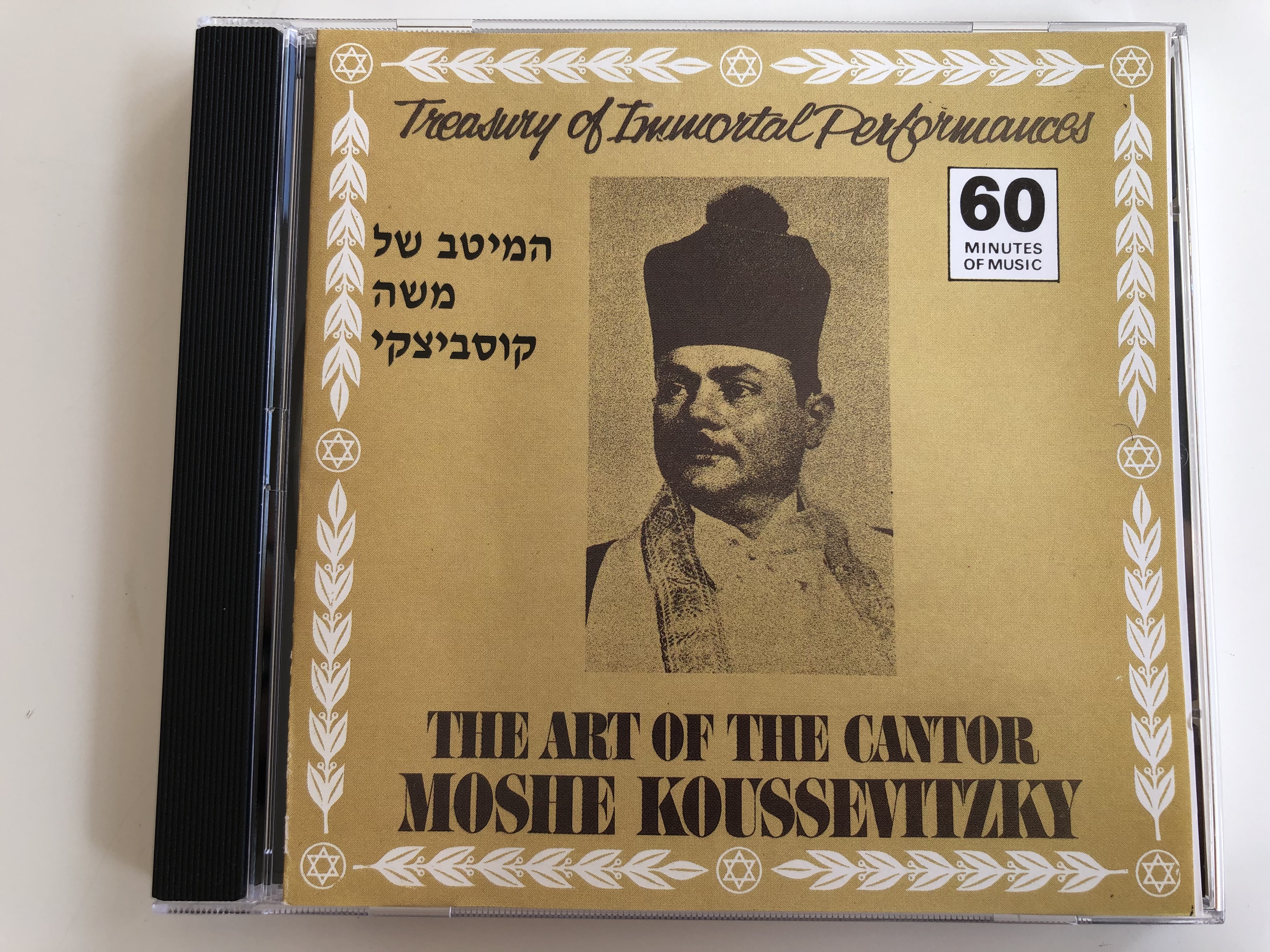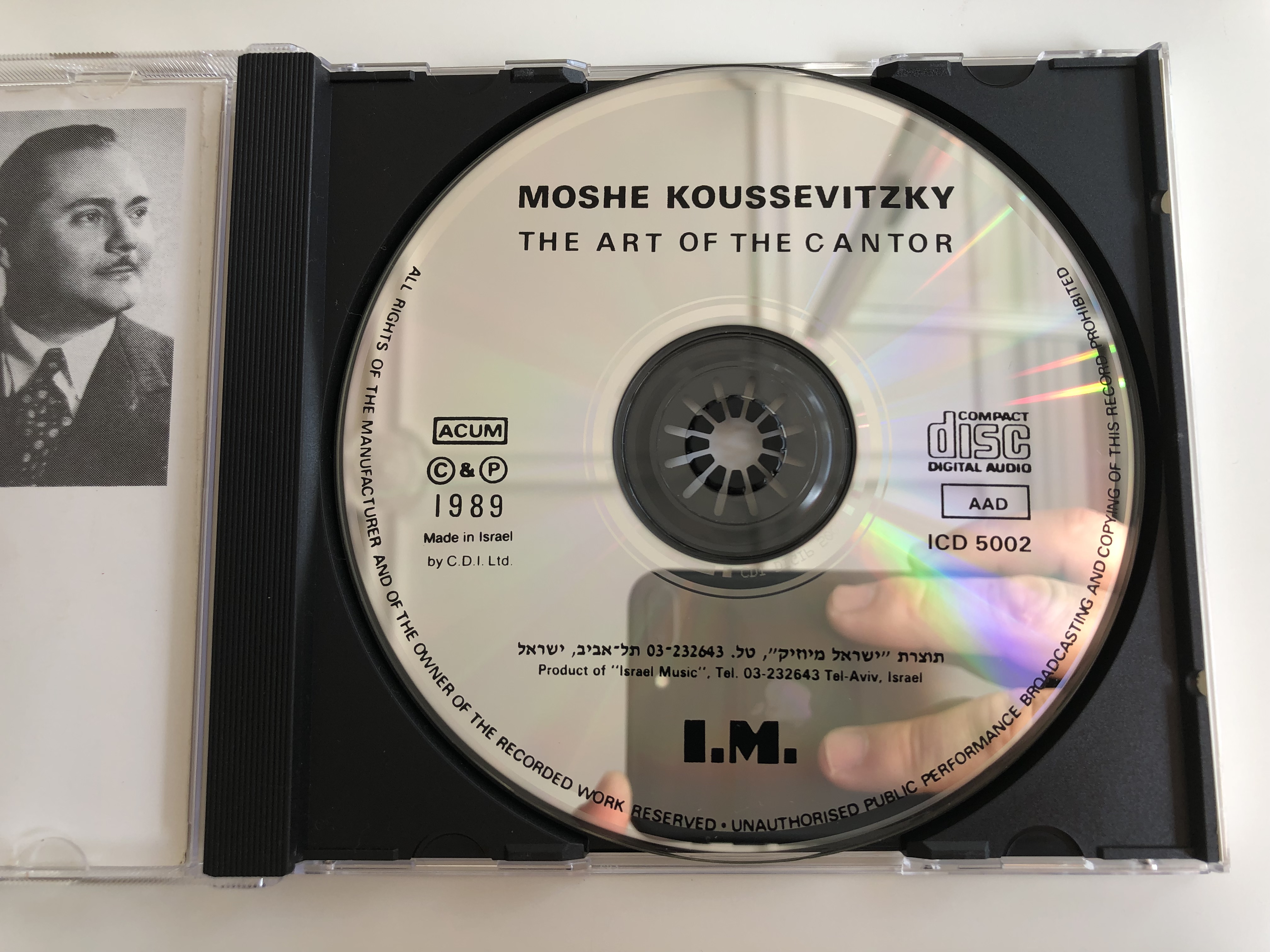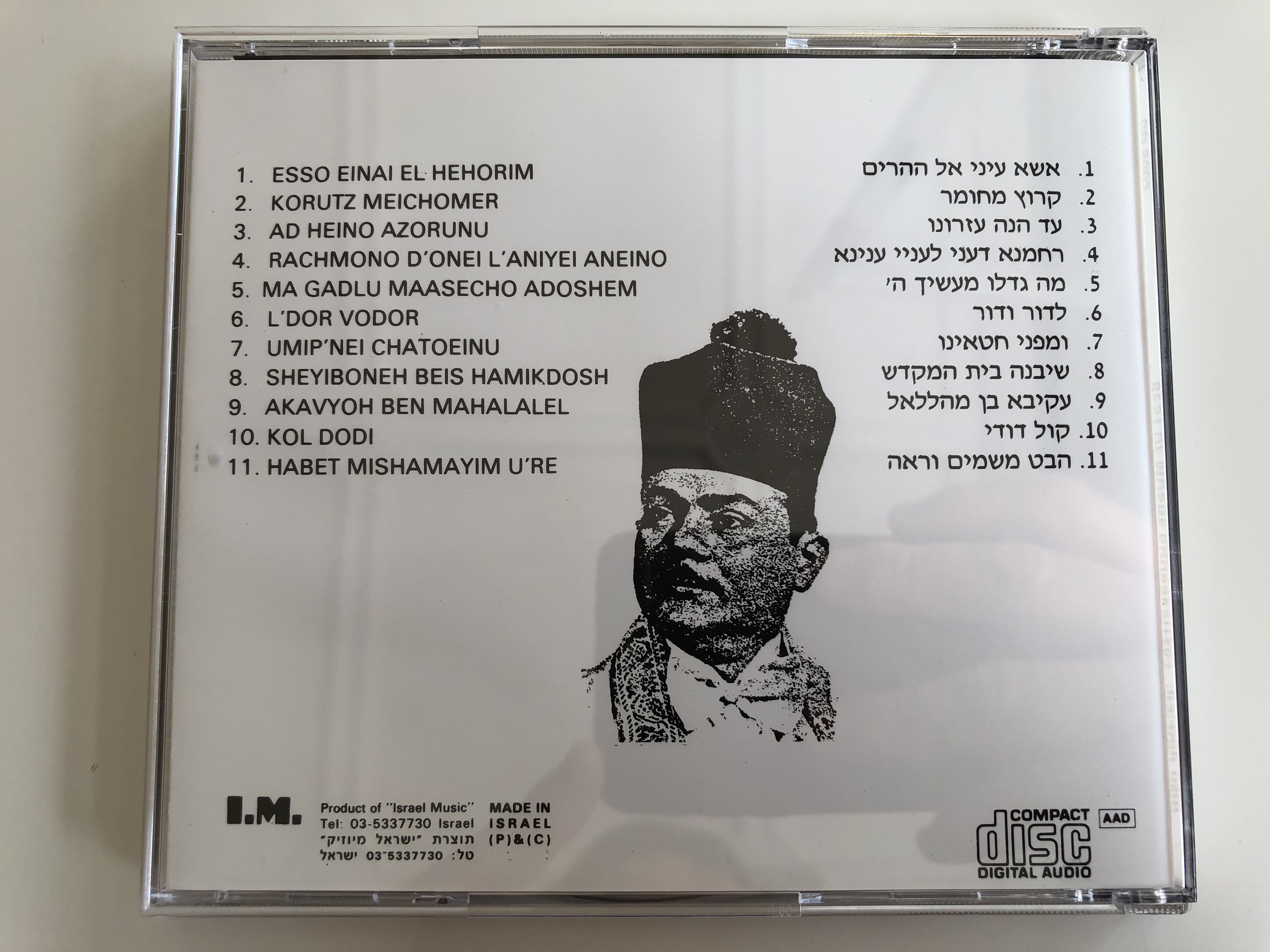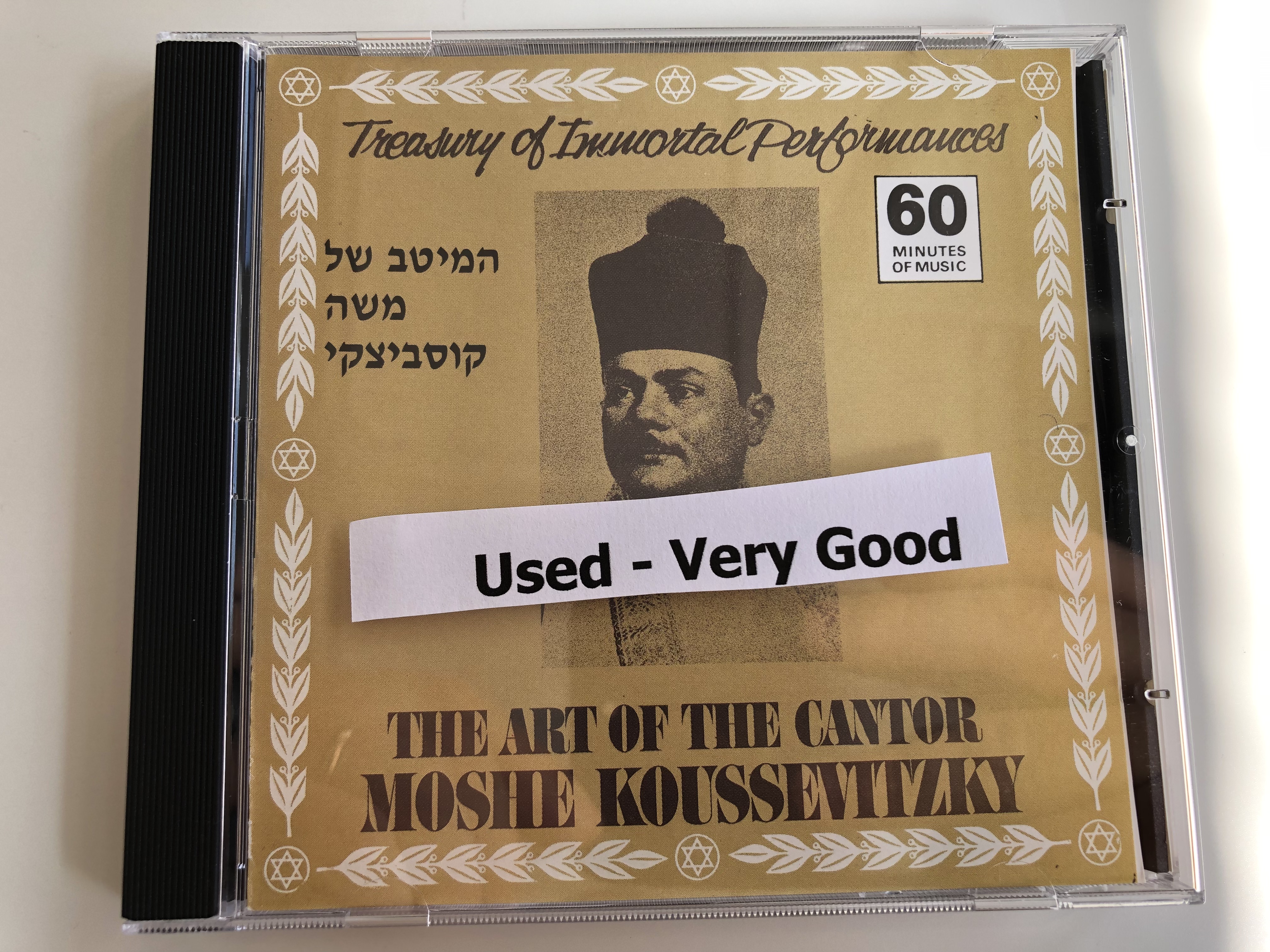Description
The Art of The Cantor Moshe Koussevitzky / Treasury of Immortal Performances / Israel Music Audio CD 1989 / CD 5002
ASIN: B0035GYSFE
!!! Condition of this CD is USED VERY GOOD !!!
THIS IS A SUPER RARE CD! Collector's item!
Made in Israel
Tracklist:
| 1 | Esso Enai El Hehorim | |
| 2 | Korutz Meichomer | |
| 3 | Ad Heino Azorunu | |
| 4 | Rachmono D'Onei L'Aniyei Aneino | |
| 5 | Ma Gadlu Maasecho Adoshem | |
| 6 | L'Dor Vodor | |
| 7 | Umip'Nei Chatoeinu | |
| 8 | Sheyiboneh Beis Hamikdosh | |
| 9 | Akavyoh Ben Mahalalel | |
| 10 | Kol Dodi | |
| 11 | Habet Mishamayim U're |
The essential milestones of Moshe Koussevitzky’s life are well-known to most people who love cantorial music. Often, the sources of such information are the printed inserts which accompany recordings sold in stores. However, his eventful life has also generated material which can only be described as fanciful, some of which has found its way into those same inserts. The most authoritative information about his life now comes from the only existing Koussevitzky biography, Zakhor ezk’renu od (I Remember Him Still) which was authored by the late Israeli scholar Akiva Zimmermann and issued in connection with the centennial of the hazzan’s birth.
Cantor Koussevitzky OBM was born June 9th 1899 at Smargon in Vilna, Lithuania and came from a background of Chazanut. He was the oldest of the four brothers, with Jacob, Simcha and David and, as is well-known, they all went on to become famous Cantors in their own right. Moshe is regarded generally as the King of the Cantors. He was possessed of an outstanding, well-trained, tenor voice of extraordinary range and flexibility and an innate understanding of the Cantorial Art of Chazanut. Moshe Koussevitzky (Hebrew: משה קוסביצקי, Polish: Mosze Kusewicki; June 9, 1899 in Smarhoń – August 23, 1966 in New York City) was a cantor and vocalist. A relative of noted conductor Sergei Koussevitzky, he made many recordings in Poland and the United States. Moshe was Born June 9, 1899, he moved to Vilna in 1920, and served there as cantor at the Sawel Synagogue, and, starting in 1924, at the Great Synagogue of Vilna. In 1927 or 1928 he became cantor of the Tlomackie Synagogue in Warsaw, succeeding Gershon Sirota. Koussevitzky first performed in the United States in 1938, at New York's Carnegie Hall. He and his family escaped the Nazis during the Holocaust by fleeing to the Soviet Union. In 1947 Koussevitzky and his family emigrated to the United States. He became cantor of Borough Park, Brooklyn's Temple Beth-El in 1952, living in Great Neck during the week and in Borough Park on the Sabbath. He passed away on August 23, 1966, and was buried in Israel. Cantor Moshe Koussevitzky was a lyric tenor with a spectacular and perhaps unparalleled upper register among cantors. Koussevitzky is regarded as among the greatest Cantors of the 20th century. Some would place him first among peers, though that distinction is more often given to Yossele Rosenblatt or Gershon Sirota, both of whom were a generation older than Koussevitzky. Moshe was one of four brothers, all well-known cantors. David Koussevitzky was cantor of a Conservative synagogue, Temple Emanu-El of Boro Park, only one block away from Moshe's position at Beth-El. After Moshe's death, David would continue the tradition Moshe had started, of giving an annual concert at Beth-El on Rosh Chodesh Elul. Jacob and Simcha were not prominent, but not as well known as Moshe and David. Like David, Jacob held positions in Kremenetze, Lemberg, London, Winnipeg, and finally Kew Gardens. Simcha was Cantor in Rovno, Glasgow, London (Great Synagogue), Johannesburg, and Cape Town.In December, 1947, the four brothers held a joint concert at Carnegie Hall.































